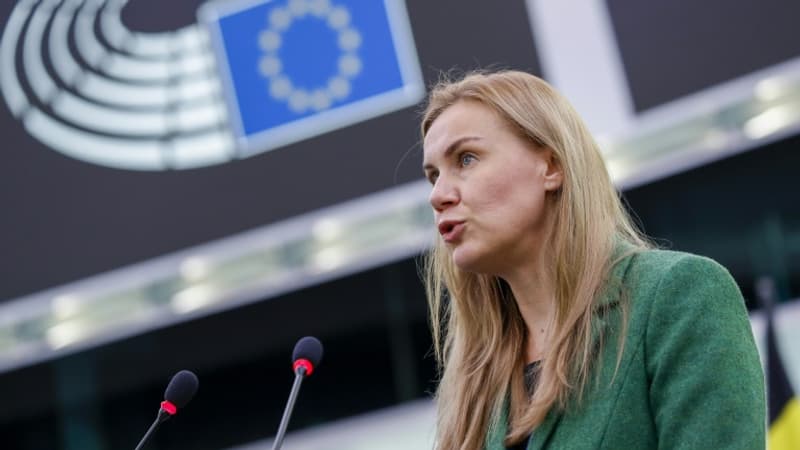European energy ministers said on Friday they favored a series of emergency measures to curb rising gas and electricity bills, even mentioning a cap on the price of gas imports from the EU.
Meeting in Brussels, the representatives of the Twenty-seven agreed on a “common orientation” to curb the increase in energy prices caused by the Russian offensive in Ukraine. They asked the European Commission to prepare “a solid and concrete proposal in a few days,” said Czech Industry Minister Jozef Sikela, whose country holds the rotating EU presidency.
Debate over gas price cap in Russia
Before the meeting, the European executive had presented to the member states several possible mechanisms, often complex, with the hope of arriving on Wednesday at a legislative project with enough consensus to be approved quickly.
While the idea of confiscating the super-profits from nuclear and renewables to redistribute them as a possible objective of reducing electricity consumption was welcomed, the proposal to put a cap on the price of gas paid to Russia was debated.
While Moscow threatens to stop its shipments if such a mechanism is applied, Hungary, still very dependent on Russian hydrocarbons, showed its strong opposition to this “new covert sanction” that will probably cause a “shortage”, while Prague denounced “an idea constructive”. .
Gas providers in the same boat?
In the end, “the prevailing opinion was that we needed a gas cap”, whatever its origin, “but the Commission must be given time to fine-tune how to implement it”, said Jozef Sikela. Given that Russian gas now accounts for only 9% of European imports (compared to 40% before the war), several states, including Italy, advocated an outright cap on the prices of gas purchased by the EU, including liquefied natural gas (LNG). “Fifteen countries have declared themselves clearly in favor (…), a solid majority,” greeted the Italian minister, Roberto Cingolani.
“Nothing is excluded (…) but we must be careful not to undermine the security of our supplies” during the winter, reacted Kadri Simson, recalling that the EU must remain sufficiently attractive in a highly contested world market, where supply it is scarce. and where LNG carriers can easily find other destinations.
“Under the term ‘gas price cap’ we can put many things”, the French minister Agnès Pannier-Runacher insisted, “be it LNG, gas transported by gas pipeline from Norway and Algeria”, or the ceiling imposed by Spain on the price of gas paid by thermal power plants.
Consensus for a redistribution of superprofits of energy operators
At the center of the debates: the dysfunctions of the European electricity market, where the wholesale price is indexed to the cost price of the last plant mobilized to satisfy demand, often a gas plant.
The Commission proposes to limit the revenues of nuclear and renewable energy operators (wind, solar, biomass, hydro) who sell their electricity at a price well above their production costs. States could impose the difference between this cap and the market price to redistribute these “super-profits” to vulnerable households and businesses. Despite very different energy mixes from one country to another, the measure has generated a broad consensus. Berlin and Paris, under political pressure to tax “super-profits”, demanded such a “contribution mechanism”.
Reduction of electricity demand in the EU
At the same time, the Commission wants to demand “a temporary solidarity contribution” from the producers and distributors of gas, coal and oil, favored by the rise in prices.
After the agreement of the Twenty-seven at the end of July to cut its gas consumption, Brussels also proposes setting “binding objectives” to reduce electricity demand, with a fall “of at least 10% in monthly net consumption” and 5 % during peak hours.
Source: BFM TV


